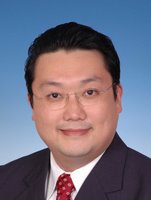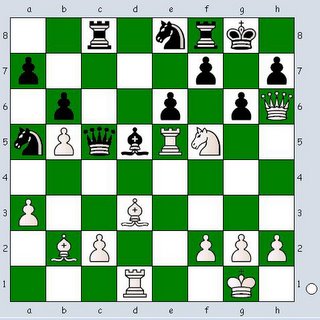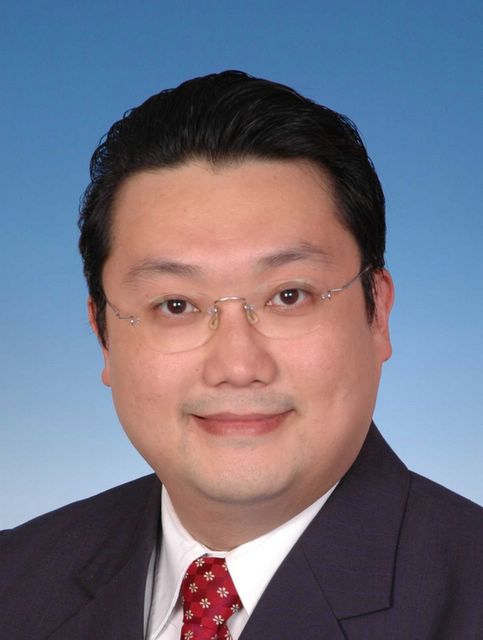Tuesday, November 29, 2005
Monday, November 28, 2005
The Great Learn Young
An excerpt from Chess for Children.
Wilhelm Steintz reigned as world champion from 1866 – 1894. He learned to play at the age of 12.
Chess Trivias
Q2. What are the name of the first two books to be printed in the English language, by the English printer William Caxton?
Q3. Who did the Comedian Bob Hope played the game of chess on the "Bob Hope Show"?
Q4. Who did John Lennon play chess with on the video for the song "Imagine"?
Q5. Who and when was the first recognized as the World Chess Champion?
Q6. Did you know that the final position shown on the demonstration boards in the James Bond film From Russia with Love was actually a real game that is played by which two great GM?
Q7. How much money did the wealthy banker in Montenegro put up for the match between Bobby Fischer and Boris Spassky to play in September 1992?
Q8. In which episode of Star Trek, did Captain Kirk and his first officer, Mister Spock, played a form of 3-Dimensional chess on the Starship Enterprise in 1966?
Q9. In which Shakespeare's play did Ferdinand and Isabella played chess?
Q10. What did chess term "patzer" mean?
Q11. What did chess term "Kibitzer" mean?
Q12. Who are the famous British politicans that loved playing chess?
Q13. Who are the famous American politicans that loved playing chess?
Q14. What is the name of this game 1. f3 e5 2. g4 Qh4#?
Q15. What did British top chess players Hugh Alexander, P.S. Milner-Barry and Harry Golombek had in common during World War II?
Sunday, November 27, 2005
My Students' result in HK Junior Chess Championship
In 2005
Age group 7 or below
Marcus Au Champion
Age group 8-10
Chevan Tin 1st Runner up
Lam Yat Fung Jonathan 4th Runner up
Age group 11-13
Lo Cheuk Wai 1st Runner up
Age group 14-18
Dominc Chan 3rd Runner up
In 2004
Age group 7 or below
Christopher Yu Champion
Jeremy Chow 2nd Runner up
Yu Chun Yin 4th Runner up
Chevan Tin 5th Runner up
Age group 8-10
Felix Li 5th Runner up
Age group 11-13
Rory Grieve 1st Runner up
Wednesday, November 23, 2005
My Students

Marcus Au
The Champion of the Under Age 7
2005 Hong Kong Junior Championship

Jonathan Lam
The 4th Runner up of the Under Age 10
2005 Hong Kong Junior Championship

Chevan Tin
The 1st Runner up of the Under Age 10
2005 Hong Kong Junior Championship
The above are some of my students in the 2005 Hong Kong Junior Chess Championship.
My Chess Resume

Mingo Lam
Mobile: 9423-4783
1985 –1989 New York, New York University
Bachelor of Arts in Mathematics and Economics
Chess Instructor
Mingo is an experienced chess instructor in
Teach in Schools or Learning Institute
Diocesan Boys’ School Primary Division
Studio 49
ChessKids
Why Mingo plays chess: "The greatest aspect about chess is it makes strategic thinking fun. I treasure the benefits of this game due to their contribution to my academic success. Chess is universal; I can go anywhere in the world and play a game of chess."
Why Mingo teaches chess: "I enjoy helping young children to develop chess skills, in particular to enhance creativity, problem solving, critical thinking, decision making, memory, concentration, intellectual maturity, and self esteem. I believe that chess heightens the thinking process and helps children to develop into better critical thinkers, problem solvers and decision makers. I believe that chess has helped me and that's why every child should be exposed to the same opportunities."
Chess Improves Academic Performances
Chess has long been recognized throughout the world as a builder of strong intellects, but only recently has the international educational community begun to recognize chess's ability to improve the cognitive abilities, rational thinking and reasoning of even the least promising children. Chess brings out latent abilities that have not been reached by traditional educational means. It promotes logical thinking, instills a sense of self‑confidence and self‑worth, and improves communication and pattern recognition skills. It teaches the values of hard work, concentration, objectivity, and commitment. As former World Chess Champion Emmanuel Lasker said, "On the chessboard lies and hypocrisy do not survive long."
Students in Competitions
He has train up many students achieved the competition’s awards and their personal goals in the Hong Kong Junior Open Championship 2004 and 2005.
Beginners (Children)
Beginners (Adults)
Goal Setting
Openings
Tactics
Endgames
Tournament Preparation
Team Coaching
Problem Composition
Lectures
Age of Student
Children below Age 6
Children Age 6 to 18
Adults
My Favorite Chess Player

Famous Chess Players: Richard Reti
Richard Reti (1889-1929) was born on May, 28th 1889 in Prague, Czechoslovakia. He was one of the top players in the world during the early 20th century. The Reti Opening (1. Nf3 d5 2. c4), with which he famously defeated the world champion Jose Raul Capablanca in New York in 1924, is now a commonly used opening on the grandmaster circuit. This defeat marked the first time Jose Raul Capablanca had lost since he had acquired the world championship title. Reti composed numerous superb endgame studies. He also was the author of the two of the greatest chess books ever written: Modern Ideas in Chess and Masters of the Chessboard.



